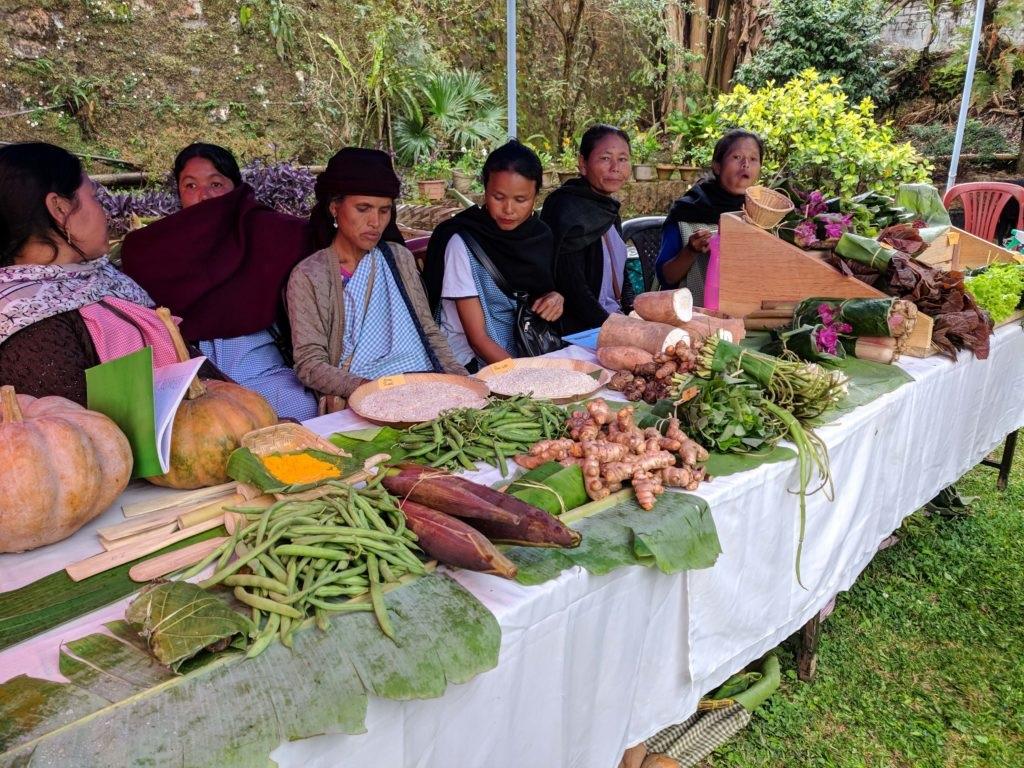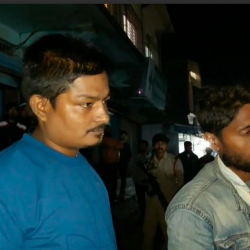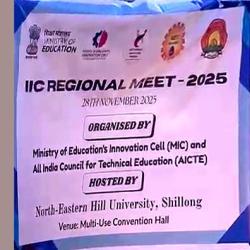Covid 19 pandemic has opened up many truths around us. One such truth about our city is the growth of vendors and hawkers who visit our homes, byelanes or localities even during covid times. Only voices sometimes one could hear during home quarentine and lockdown periods were that of vegetable, fish, chicken vendors. Earlier we used to hear 'Dorupay wala' vendors from Bihar and UP with all kinds of utility products in dirt cheap prices and mekhela sador selling vendors during the flood season mostly from flood affected districts of Dhemaji and Lakhimpur. But these days we hear about spice sale, food item sale, delivery staff from various companies like swiggy, zomato and all food joints with home delivery. The vendors from flipkart, amazon and other e commerce outlets also visit our locality occasionally. All these jobs are done by men. Whether its the rice seller, milk seller, newspaper delivery man, cable tv operator, scrap collectors, gas, mixer, cooker repairer, waste collector almost all of these jobs are male dominated within the urban context.
Jobs like ola drivers, uber drivers, auto rikshaw and cycle rikshaw driving, e-rikshaw driving and street food stalls are also mostly set up by men. Women and other non-binary vendors are not mobile or into delivery business yet. Such predominantly male peferance is also due to societal perceptions of stigma and discrimination against non-male genders. All gardeners are male in urban spaces these days. Masons, head construction workers and support staff are also predominantly male. Only a few women construction workers are visible in the urban spaces. Such blatant gendered spaces in the cities have shrinked the skilled and unskilled opportunities for non male workers. With the pandemic lockdown, women are seen more as food and utility stuff beggars at homes. They stay on pavements, outskirts of religious places, parks, under the flyovers, railway platforms, bus station premises and other possible public places along with their families, elders, sick spouses and children and beg during the day to make a living. Most of them used to earn daily wage or domestic work jobs before the pandemic hit. But with the growing hate, fears and precautions people in urban homes stopped employing domestic workers at home for short period. Especially those workers who had to travel long distances from their homes. Women have been bearing the loss of productive labour and increase in their reproductive labour during this period. Recent child delivery of one such woman under the flyover in Guwahati created ripples across the social media and news reporting circles.
Women's work in the urban context also got affected due to closure of institutions, hostels, hotels, home based guest houses, malls, showrooms and markets where women somehow managed to find some place as full time or part time workers before the pandemic hit. Women in these institutions worked as cleaners, waiters, support staff, receptionists, sanitation workers and temporary or faltu labour most of the time. Women with violent homes were trapped with their families where their lives were further degenerated. Atleast with workplaces, women could ensure economic and emotional survival and respite for sometime from their difficult homes but with pandemic they were further pulled down.
In the urban context of care work, nurses, doctors, teachers, cleaners, sanitation staff and tailors comprises of women in considerable numbers. But the pandemic created another set of risks for such women as they had to be in the frontline of service whether online or offline. Lot of women faced discrimination and isolation from neighbours and housing society members due to fears of getting corona during their line of duty. Women in banking institutions in urban context also had to face similar problems during this period. Some women staying at home along with their frontline spouses also beared the consequences of getting covid during this period. Most crucial battles were fought by single women living in isolated home spaces whose lives were confined and had to depend only on state support services while suffering from the covid 19 symptoms. Even urban mothers with young children and lactating mothers had to brave the isolation pangs from their respective children and care support system during this pandemic. Most women shared about being mothers, care workers at home and frontline workers outside homes simultaneously during the pandemic and shared how they had to manage multiple roles in their private, public and professional spaces. But all these remain invisible, unaccounted and non monetised under the epitomised self of being a mother, daughter, sister, friend, partner, spouse and support staff. Even women's work like cooking, cleaning, washing, making masks and gloves took utmost priority during this period.
Men in urban spaces like Guwahati could manage to be part of mobile livelihoods, community mobilisations, cultural activities and formal construction work with adequate compensation and remuneration. While women and non binary gender persons entered unrecognised home spaces without any incomes or begged door to door for all survival needs. It is important to understand these nuanced implications on gender, development centred livelihoods which got severely affected during the covid pandemic and existing misogyny in our society despite urbanised, educated and liberated selves. During the fortnight campaign #orangetheworld, protecting, funding, responding and collecting diverse ways of respect, dignity and co creating opportunities has become mandatory.
by
- 8041 reads









Add new comment